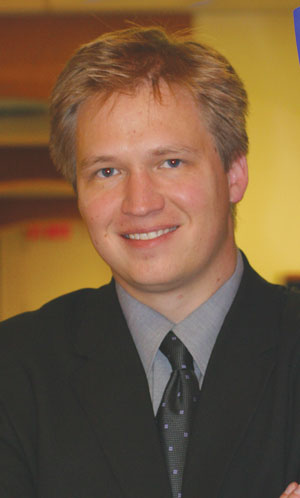A lawyer who alleges that an immigration enforcement officer impersonated him to locate and deport his client wants the government to repudiate such tactics, which he says could hamper counsel’s ability to communicate with clients.

“I was stunned. I’d never heard of [Canada Border Services Agency] doing anything like this in the past,” says Joel Sandaluk, adding he was “amazed” to hear the claim that his “name had been used to lure someone out of hiding.”
Meanwhile, the Canadian Civil Liberties Association says an independent investigation should be conducted.
The lawyers involved in the case say they are considering their legal options.
Sandaluk says he felt violated when he heard of the apparent impersonation. The officer’s alleged actions threaten his ability to ply his trade, he adds.
“In the legal profession we all trade on our names,” he says, adding if his name has been “used in this way [it strikes] me as being extremely dishonest. It also, in my opinion at least, will have a chilling effect on my ability to meet with my clients.”
A spokeswoman for CBSA did not respond by press time to Law Times’ request for comment.
Sandaluk’s partner Guidy Mamann, who took over handling the case, says he spoke with the officer involved in the allegations, and he denied the claim.
In an affidavit sworn just prior to his deportation, Fabricio Campos alleged that he received a call on his cell phone one morning last month from a caller who identified himself as “Joel,” and Campos assumed it was his lawyer, Sandaluk.
Campos said his wife, Marta Sousa, had been arrested the previous day on immigration charges, and had called Sandaluk for legal advice. The caller said he wanted to take Campos to see his wife, and Campos gave his location at a friend’s home so they could meet, read the affidavit.
“I asked him twice if it was safe for me to see my wife since immigration authorities were also looking for me,” wrote Campos. “He assured me that I wouldn’t be detained.”
About 10 minutes later, said Campos, he went to the lobby of the building where he was staying to meet Sandaluk. Instead, he said, “Waiting in the hallway right outside the apartment was two immigration officers, a male and a female.”
The officers then arrested him, said Campos, adding that he believed the male officer was the person who he thought on the phone was his lawyer.
“The male officer’s voice was identical to the caller who identified himself to me as ‘Joel’ a few minutes earlier,” wrote Campos in the affidavit, dated Jan. 15.
“Now I cannot be sure that the person who calls me and identifies himself as a lawyer is actually a lawyer and not a law enforcement officer,” he said.
Mamann says Campos has since been deported to Brazil. He adds that, while his client’s prospects for returning to Canada are poor, “The issue that has arisen is much bigger than the personal circumstances of Mr. Campos. I’m not sure the bar is ready to see law enforcement officers running around pretending to be specific lawyers. I think that would really create chaos.”
Alan Borovoy, general counsel for the CCLA, says while it’s unclear just what happened between Campos and the immigration officer, the allegation must be addressed.
“We would regard the impersonation of a person’s lawyer as quite a substantial impropriety if it were committed by government officials in the course of their duty,” says Borovoy. “One would hope that the immigration official is telling the truth, because we wouldn’t like to think that such a practice would in any way be condoned by our government.”
Borovoy adds, “The relationship between lawyers and their clients is one of the pillars of our system for administering justice, and it would ill behoove any official of the government to disparage in that way this important part of our justice system.”
The CCLA would like an independent investigation of Campos’ allegations, he says.
“To whatever extent there is any question of such wrongdoing by an official of the government, there ought to be appropriate disciplinary measures adopted,” says Borovoy.
Sandaluk, meanwhile, says he felt like a victim of a fraud when he heard the allegations.
“When you have government agents claiming to hold a position of trust with a person who’s underground - it’s kind of stunning actually when you think about it, that they could completely undermine the solicitor-client relationship,” he says. “Not to mention, completely destroy any level of trust I’ve built up with that individual.”
Sandaluk and Mamann say they have met with their own counsel and called the Crown’s office regarding the matter.
“Right now we’re getting our own legal advisers together,” says Mamann. “Once we are in a position to put our case forward, we’re going to make a complaint with whatever legal authority is involved in this.”
Adds Mamann: “This is a matter of great public interest and a matter of public policy that needs to be resolved.”
“The objective here is to make sure that law enforcement understands that this is not legal, and that they agree not to do this,” he says.
“Even if we were to assume that it did not happen, the question is, is the government’s position that they have the right to do this nonetheless?”
Sandaluk says, “At a minimum, I would want the government to disavow this type of behaviour.”

 “I was stunned. I’d never heard of [Canada Border Services Agency] doing anything like this in the past,” says Joel Sandaluk, adding he was “amazed” to hear the claim that his “name had been used to lure someone out of hiding.”
“I was stunned. I’d never heard of [Canada Border Services Agency] doing anything like this in the past,” says Joel Sandaluk, adding he was “amazed” to hear the claim that his “name had been used to lure someone out of hiding.”